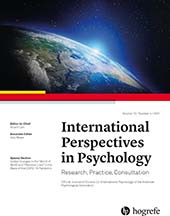Abstract
Abstract. The United Nation's Sustainable Development Goal (SDG) 8.5 aims to “achieve equal pay for work of equal value” globally by 2030. This goal conflicts with a widespread and continuing practice of paying skilled workers from higher-income economies working in lower-income settings more than their host worker counterparts. This brief summarizes research that has found that dual salaries undermine host colleagues' sense of wage justice, work motivation, and team relations. At organizational levels, they fuel turnover, increase brain drain, and reduce mental well-being of workers. Higher ratios fuel a “double demotivation” – extending to international staff who overrate their own abilities and reduce their effort at work. International, multisector evidence shows conventional dual salaries to be neither compatible nor to align with the SDGs. Organizational options for meeting SDG 8.5 identified in civil society groups include reducing dual salary ratios and implementing single salary systems at a national level. We offer three macro policy frameworks (Project Fair's Principles and Standards of INGO Fair Reward, the UN Global Compact, and OECD Guidelines for Multinational Enterprises) that can serve to render salary systems more facilitative of the SDGs and the Decent Work Agenda.
Impact and Implications.
This work speaks directly to the United Nations' Agenda for Sustainable Development, and in particular SDG8.5: Equal pay for work of equal value. It addresses the challenge of fair pay and benefits for workers from different countries of origin working together in similar roles. Drawing on research in work and organisational psychology, this policy brief offers evidence-based alternatives to traditional dual salary systems.
References
(2003). International compensation: Learning from how managers respond to variations in local host contexts. The International Journal of Human Resource Management, 14(8), 1350–1367. 10.1080/0958519032000145792
(2016). The traditional approach to compensating global mobility: Criticisms and alternatives. The International Journal of Human Resource Management, 28(1), 149–169. 10.1080/09585192.2016.1239123
(1998). Expatriate aid salaries in Malaŵi: A doubly de-motivating influence? International Journal of Educational Development, 18(2), 133–143. 10.1016/S0738-0593(97)00040-0
(2010). International–local remuneration differences across six countries: Do they undermine poverty reduction work? International Journal of Psychology. 45(5), 321–340. 10.1080/00207594.2010.491990
(2012). Living well while doing good? Missing debates on altruism and professionalism in aid work. Third World Quarterly, 33(8), 1475–1491. 10.1080/09700161.2012.698133
(2014). Compensation disparity between locals and expatriates in China: A multilevel analysis of the influence of norms. Management International Review, 54(1), 107–128. 10.1007/s11575-013-0190-3
(2010). The aid triangle: Recognizing the human dynamics of dominance, justice and identity. Zed Books.
(2003). Double demotivation and negative social affect among teachers in Indonesia. South Pacific Journal of Psychology, 14, 1–7. 10.1017/S0257543400000201
(2010). Remuneration disparities in Oceania: Papua New Guinea and Solomon Islands. International Journal of Psychology, 45(5), 350–359. 10.1080/00207594.2010.491992
(2014). Employing novel compensation approaches to compete for expatriate talent. In L. Berger and D. Berger (Eds.), The compensation handbook (6th ed., pp. 503–518). McGraw-Hill Education.
(2017). Project FAIR: Exploring practical pathways for reward fairness in international NGOs. University of Edinburgh.
(2010). Per diems undermine health interventions, systems and research in Africa: Burying our heads in the sand. Tropical Medicine and International Health, 15(7), E1–E4. 10.1111/tmi.2607
. (2014). Development at the base of the pyramid. UNDP.
. (2019). Sustainable development knowledge platform. UN.
(2018). Compensating global careerists. In M. DichmannV. SuutariO. Wurtz (Eds.), The management of global careers (pp. 319–340). Palgrave Macmillan.



